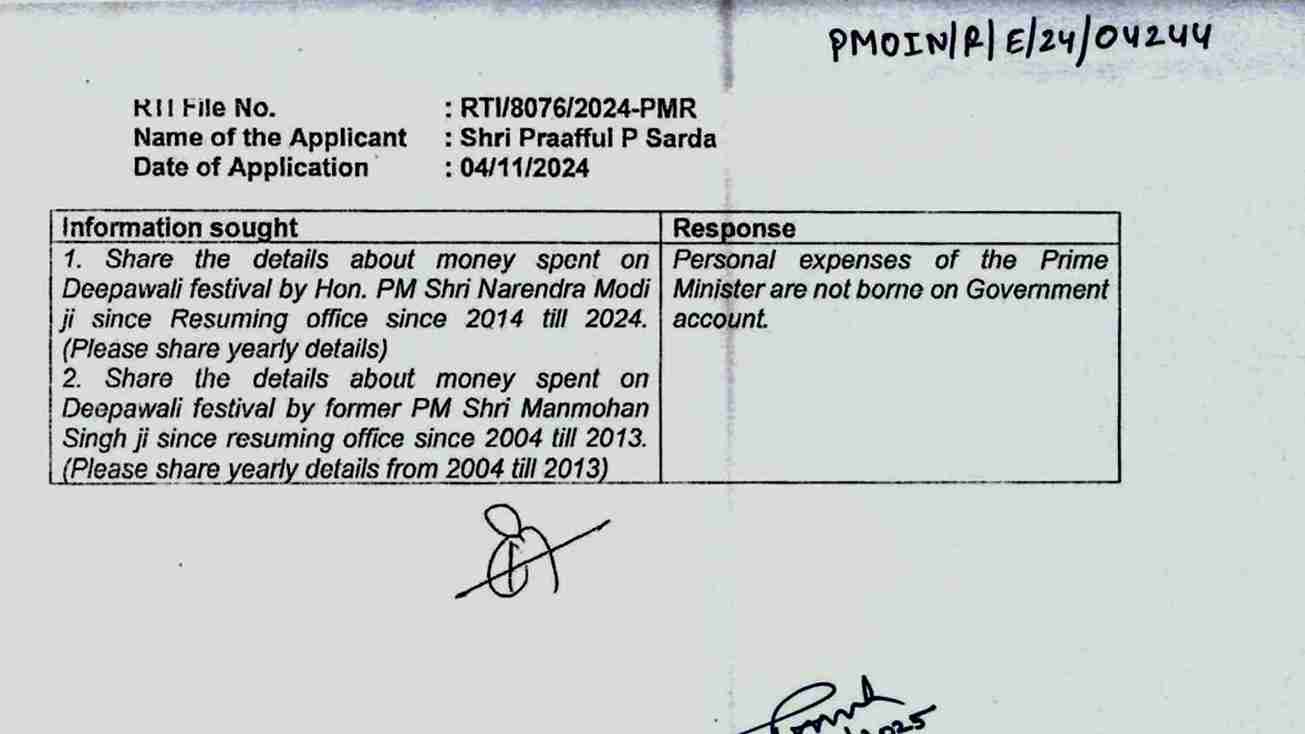RTI filed by civil rights activist Prafful Sarda reveals that Prime Minister Narendra Modi has been funding Deepawali celebrations from his pocket since 2014. RTI reply shared by Sarda through his X account @Prafful_sarda confirmed that the government had not spent any amount for these celebrations; PM Modi himself had borne the expenses from his pocket.
This revelation adds to the story of PM Modi’s personal approach towards his official duties, depicting a trend of austerity and personal responsibility. It is not the first time Modi has been found to pay for personal expenses of his leadership role personally. Earlier RTI findings have revealed that he also pays for his medical expenses from his own pocket, a move that resonates with his public image of being a role model and emphasizing personal discipline.
This has caused quite a wide array of reactions, as the proponents of PM Modi have hailed this act as proof of his integrity, citing it as part of his broader initiative like “Fit India” and “Minimum Government, Maximum Governance”, where he not only advocates but practices minimum reliance on public funds for personal needs. The support for him perceives this personal investment in the Deepawali celebrations as his commitment to preserving cultures and unity, done at personal expense.
Sarda commented that on the other hand, critics argue that while the gesture might be commendable, it raises questions about the broader implications for transparency and the separation of personal and public expenditures by those in office
Since the news has spread, it has not only kept focus on PM Modi’s personal financial decisions but has also reignited discussions on the role of RTI in upholding transparency and accountability in governance. Prafful Sarda’s continued use of RTI for bringing out the details of spending of the government has always played a vital role in creating informed public debate, thus keeping more people informed about how their leaders conduct their personal as well as official activities.

